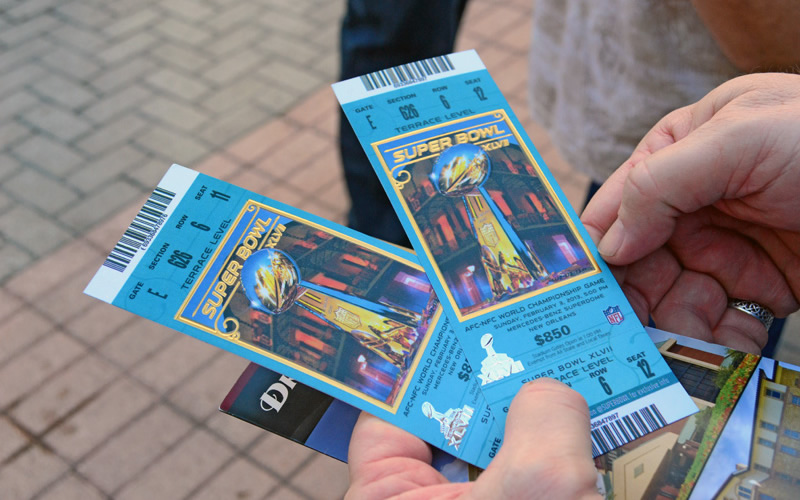Man pleads guilty to selling counterfeit Super Bowl, BCS National Championship tickets in New Orleans
"Counterfeit goods steal revenue from legitimate businesses that pay taxes and employ workers, but counterfeit tickets also rip off unsuspecting fans who are left without their money and without a ticket," said Special Agent in Charge of HSI New Orleans Raymond R. Parmer, Jr. "Organized criminals prey on the excitement surrounding big events; the public should remember any item that seems 'too good to be true' should be cause for caution and concern."
Parmer oversees a five-state area of responsibility including Louisiana, Alabama, Arkansas, Mississippi and Tennessee.
According to court documents, Richard McNeal, 47, of Randallstown, Md., admitted he travelled to New Orleans on or about Jan. 8, 2012, to sell counterfeit tickets to the 2012 Allstate BCS National Championship game. After finding no available hotel rooms in New Orleans, McNeal travelled to Picayune, where he sold four counterfeit tickets for $3,000. The victims discovered the tickets were counterfeit when they were rejected entry at the Superdome. The victims then returned to Picayune and reported the crime to local police.
McNeal admitted he travelled again to New Orleans in February 2013 to sell counterfeit Super Bowl tickets. On Feb. 3, HSI special agents made contact with a victim after they were rejected entry to the Superdome. That victim purchased two counterfeit tickets for $1,650 and provided HSI with contact information for McNeal. HSI subsequently made contact with McNeal and conducted an undercover buy of two additional counterfeit tickets for $2,600. New Orleans police, working in conjunction with HSI, then arrested him.
A second victim who purchased two counterfeit Super Bowl tickets for $1,000 also provided HSI with contact information and identified a photo of McNeal as the person who sold them tickets.
McNeal is scheduled to be sentenced before U.S. District Judge Mary Ann Vial Lemmon on Sept. 19. He faces a maximum penalty of 10 years in federal prison and a $2 million fine.
This case was part of ICE's nationwide enforcement operation dubbed 'Operation Red Zone' that came to an end in February with record-breaking results. The operation, which began Sept. 1, netted 196,333 counterfeit National Football League (NFL) items including fake jerseys, ball caps, t-shirts, jackets and other souvenirs. The items had a manufacturer's suggested retail price (MSRP) of more than $17.3 million.
Operation Red Zone not only targeted international shipments of counterfeit merchandise as it entered the United States, but also focused on warehouses, stores, flea markets, online vendors and street vendors. This year, additional focus was placed on identifying and seizing counterfeit tickets to the Super Bowl. In all, 168 tickets were seized with an MSRP of more than $154,000. Forty-one individuals were arrested nationwide during the operation including six federal and 35 state and local arrests.
This investigation was supported by the HSI-led National Intellectual Property Rights (IPR) Coordination Center in Washington. The IPR Center is one of the U.S. government's key weapons in the fight against criminal counterfeiting and piracy. As a task force, the IPR Center uses the expertise of its 21-member agencies to share information, develop initiatives, coordinate enforcement actions and conduct investigations related to IP theft. Through this strategic interagency partnership, the IPR Center protects the public's health and safety and the U.S. economy.
For more information on the IPR Center please visit www.IPRCenter.gov.
HSI encourages the public to report intellectual property rights violations and related information by calling at 1-866-DHS-2ICE or by visiting www.ICE.gov/tips.


